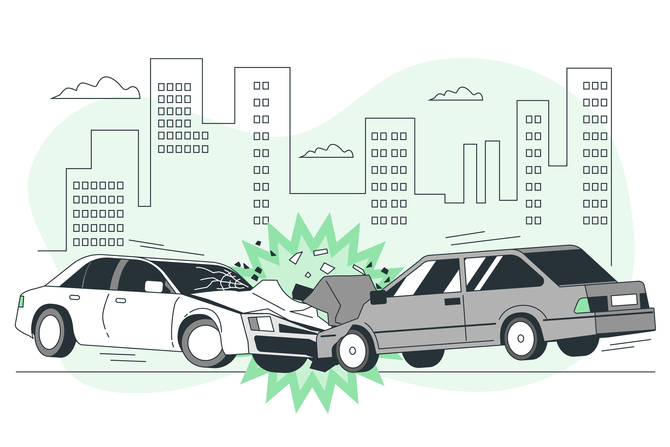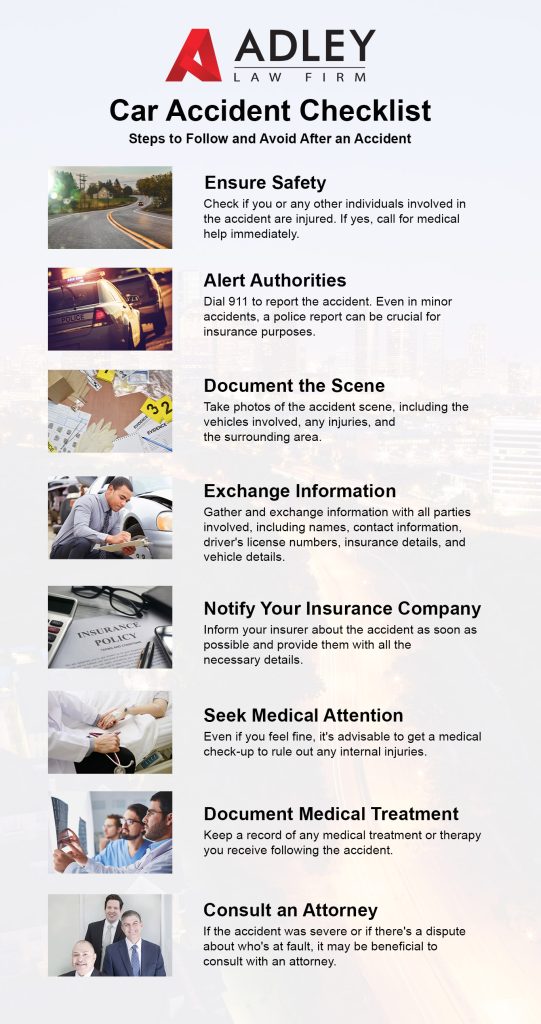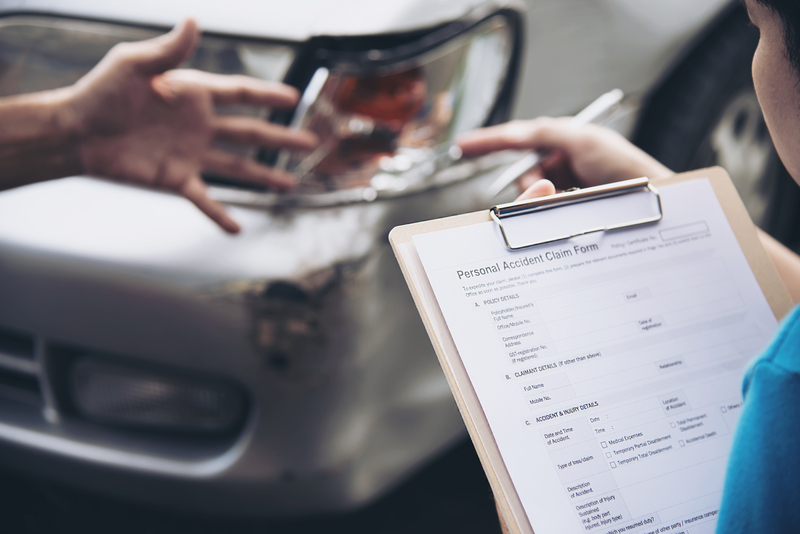Menu
If you’ve been in a car accident in Houston, you need an experienced car accident attorney to protect your rights. The Adley Law Firm has been handling car accident cases in Houston for over 30 years. We know how to get you the compensation you deserve.
Contact us today for a free consultation.
Your chances of reaching a higher settlement are increased with a specialized car accident attorney.
Our lawyers at Adley Law Firm are skilled and specialized in car accidents and will provide you with the compensation you deserve. They know how to work with and against insurance companies and third parties.
There are many reasons why you should hire an attorney. Adley Law Firm has over 30 years of experience to help you get the compensation you deserve. We will work hard to get you the best possible settlement. We have a proven track record of success. We will fight for you every step of the way.
We understand the ins and outs of the insurance claim process. We know how to deal with the insurance companies. We will make sure you get the full value of your claim. We will not let the insurance company take advantage of you.
Visit our car accident FAQs for more answers to all your questions.
We have recovered millions of dollars for our clients. We have the resources to take on the big insurance companies. We will not back down from a fight. We will fight for you until we get you the compensation you deserve.
If you or a loved one has been injured in a car accident, you need an experienced lawyer on your side. Contact our office today to schedule a free consultation.
If you are not sure whether you need a lawyer, you can always contact a Houston car accident lawyer for a free consultation. During the consultation, the lawyer will review the facts of your case and advise you on whether you need legal representation.
Car accident lawyers in Houston, Texas charge contingency fees. This means that they do not get paid unless they win your case. The average contingency fee is one-third of the total settlement. For example, if you settle your case for $10,000, the lawyer will get $3,333.33. The higher the settlement, the higher the contingency fee.
Some lawyers also charge hourly fees. This means that they will get paid for the time they spend working on your case, regardless of whether or not they win. The average hourly fee is $250.
There are also some lawyers who charge a flat fee. This means that they will charge one price for their services, regardless of how much time they spend on your case or how much money you ultimately receive. Flat fees are typically only charged for simple cases, such as fender benders.
The best way to find out how much a particular lawyer will charge is to ask them directly. Most lawyers will be happy to give you a free consultation, during which they will explain their fees in detail.
Visit our car accident FAQs for more answers to all your questions.

The moments following a car accident are critical. Texas law requires drivers involved in a collision to immediately stop their vehicles at the scene or as close as possible without obstructing traffic.
Safety is paramount; if possible, move vehicles out of the flow of traffic and turn on hazard lights to alert other drivers. It’s important to check for injuries and call for medical help if necessary.
In Texas, it’s essential to report a car accident to the police if it results in injury, death, or significant property damage. The responding officer will create an official police report, which serves as a vital record for insurance claims and potential legal proceedings.
You can later obtain a copy of this report through the Houston Police Department or the Texas Department of Transportation’s Crash Records Information System (C.R.I.S.).
Exchanging information with the other driver is a necessary step. Be sure to collect names, addresses, phone numbers, insurance details, and vehicle registration numbers.
It’s also wise to note the make, model, and color of the other vehicle(s) involved. Avoid discussing fault or details of the accident, as these conversations could be used against you later.
Documenting the accident scene can significantly impact your ability to claim damages. Take photographs of the vehicles, any visible injuries, and the surrounding area. If there are witnesses, collect their contact information as well. This evidence can be crucial in establishing the facts of the case.
Even if you feel fine, seeking medical attention immediately after an accident is imperative. Some injuries, such as whiplash or internal trauma, may not be immediately apparent.
Prompt medical attention not only ensures your well-being but also provides documentation of your injuries, which is essential when filing an insurance claim or personal injury lawsuit.
Notify your insurance company about the accident as soon as possible. Be cautious when speaking to adjusters and avoid admitting fault or giving a recorded statement before consulting with an attorney.
Remember, insurance companies are often more interested in protecting their bottom lines than providing you with fair compensation.


In Texas, victims of car accidents can pursue compensation for various types of damages. Economic damages include tangible losses such as medical bills, property damage, and lost wages.
Non-economic damages cover intangible harm, like pain and suffering, emotional distress, and loss of enjoyment of life.
In cases of gross negligence or malicious intent, punitive damages may also be awarded to punish the wrongdoer and deter similar conduct in the future.
The process of recovering compensation may involve negotiating with insurance companies or pursuing a personal injury lawsuit. Compensation should cover all accident-related expenses, including both immediate and future costs.
It’s crucial to accurately calculate these damages, and an experienced attorney can help ensure that the settlement reflects the full extent of your losses.
If your vehicle is repaired after an accident, it may have a lower resale value, known as diminished value. Texas law allows you to claim compensation for this reduction in value, particularly if your car is newer or has a clean accident history.
Medical expenses can accumulate quickly following a car accident. In Texas, the at-fault driver’s insurance is expected to pay these bills upon settlement of the case.
Until then, you may use your health insurance or personal injury protection (PIP) coverage to handle immediate medical costs. Keeping detailed records of all medical treatments and expenses is essential for reimbursement.
If your injuries prevent you from working, you may recover lost wages as part of your compensation. Providing documentation from your employer and medical provider will support your claim for lost income.
Visit our car accident FAQs for more answers to all your questions.
Houston, with its sprawling network of freeways and heavy traffic, experiences a significant number of car accidents each year. Understanding the common causes of these accidents is crucial for drivers to navigate the roads safely and for victims to be aware of their rights should they be involved in a collision.
One of the leading causes of car accidents in Houston is distracted driving. The National Highway Traffic Safety Administration reports that thousands of people are killed each year due to driver inattention.
In Houston, drivers who text, talk on the phone, eat, or use in-car technologies while behind the wheel contribute to a high rate of preventable collisions.
Despite strict DWI laws, intoxicated driving remains a significant problem. Houston’s nightlife and the prevalence of establishments serving alcohol mean that drunk driving accidents are not uncommon.
The consequences of driving under the influence are severe, not just legally but also in terms of the potential harm to oneself and others.
Houston’s wide freeways can sometimes encourage speeding and reckless driving. Drivers who exceed speed limits or engage in aggressive driving behaviors such as unsafe lane changes and tailgating increase the risk of accidents, often with devastating results.
Intersections can be danger zones, especially when drivers fail to obey traffic signals or yield the right of way. Whether due to impatience or inattention, these failure to yield accidents can lead to serious T-bone and head-on collisions.
Houston’s weather can be unpredictable, with sudden downpours leading to slick roads and reduced visibility. Driving in poor weather conditions without adjusting speed and following distance appropriately can lead to accidents, particularly on the city’s high-speed roadways.
Sometimes, the cause of an accident may not be the driver but the road itself. Roadway defects such as potholes, uneven pavement, and poorly marked construction zones can cause drivers to lose control of their vehicles.
The Texas Department of Transportation continuously works on improving road safety, but it’s also up to drivers to navigate these challenges responsibly.
Texas law requires drivers to carry a minimum amount of insurance, yet not all do. Accidents involving uninsured or underinsured drivers can complicate the recovery of damages for victims. It’s important to understand how to handle such situations and the potential insurance claims involved.
For those involved in a car accident in Houston, it’s essential to seek the assistance of a knowledgeable personal injury lawyer who can help navigate the complexities of filing a claim and ensure that you receive the compensation you deserve.
The Adley Law Firm is well-versed in Houston’s traffic laws and has extensive experience representing victims of car accidents to ensure they are justly compensated for their injuries and losses.
Building a strong car accident claim is a critical step towards ensuring that you receive the compensation you deserve for injuries and damages suffered.
This process involves several key actions, from collecting evidence to understanding the nuances of Texas law.
The moments following a car accident are crucial. Ensure that you stop your vehicle safely and, if possible, take photographs of the scene, including vehicle positions, road conditions, and any visible injuries.
It’s also imperative to exchange information with the other driver and obtain contact details from witnesses. Remember, do not admit fault or make statements that could be used against you later.
Seeking medical attention is not only vital for your health but also for your claim. Medical records serve as evidence of your injuries and the impact they have on your life. It’s important to keep a detailed record of all medical treatments, expenses, and any related documentation.
The National Highway Traffic Safety Administration provides insights into the variety of injuries that can occur in car accidents, which can help in understanding the severity and implications of your injuries.
A strong claim is built on solid evidence. This includes obtaining a copy of the police report, which is a formal account of the accident’s circumstances. Your attorney may also help in gathering additional evidence such as surveillance footage, dashcam videos, or black box data from the vehicles involved.
Texas follows the modified comparative negligence rule, which means that your compensation may be reduced by your percentage of fault in the accident. Understanding such legal intricacies can significantly affect your claim, and legal counsel can navigate these complexities on your behalf.
Calculating the full extent of your damages is critical. This includes current and future medical bills, lost wages, property damage, and non-economic damages like pain and suffering.
The American Medical Association highlights the escalating costs of healthcare, which must be factored into your claim.
Insurance companies often aim to minimize payouts. Your lawyer will be adept at negotiating with insurance companies, turning initial lowball offers into fair settlements that cover all of your expenses and damages.
They will also advise you on the intricacies of the Texas insurance requirements, ensuring that your rights are upheld.
Disclaimer: The information you obtain at this site is not, nor is it intended to be, legal advice. You should consult an attorney for advice regarding your individual situation. We invite you to contact us and welcome your calls, letters and electronic mail. Contacting a Houston personal injury lawyer at Adley Law Firm does not create an attorney-client relationship. Please do not send any confidential information to us until such time as an attorney-client relationship has been established.
©2023 Adley Law Firm | All Rights Reserved.
Attorney Marketing by Socialfuel
Need help with your case? Get a one-on-one consultation with an experienced attorney. Simply fill out the form below for a call back.